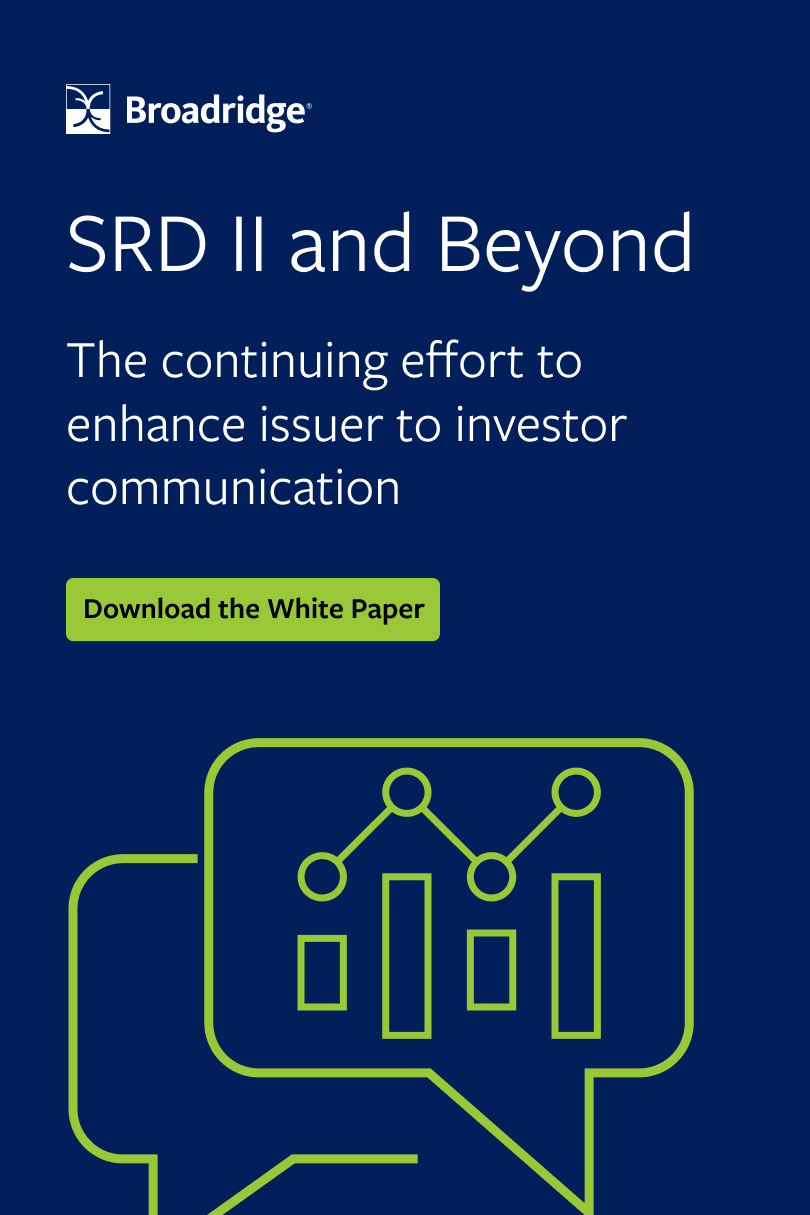Mariangela Fumagalli, head of asset servicing for global product and regulatory solutions at BNP Paribas Securities Services, has spent 11 years with the company and is a regular participant on post-trade panels. Speaking with Lucy Carter, she shares her thoughts on the current state of regulation, the problems facing the sector and what might come next
The tangled nature of regulations has been a persistent issue in the shareholder rights area, with questions as basic as what the definition of ‘shareholder’ is being a source of endless debates and disagreements.
A clear regulatory framework, that allows companies to comply without continual headaches, cannot be achieved by the market alone. “There has to be more collaboration between the industry and the regulators,” Fumagalli argues, stating that although the industry is aware of what needs to be done on their end, “sometimes we cannot address the full problem by ourselves.”
This has worked in the past, she affirms, recalling that “some aspects” of the Shareholder Rights Directive II (SRD II) were successful “because the industry worked with the European Commission on some of its technical elements.” Yet, there’s still a long way to go here — SRD II has been met with significant criticism and its efficiency questioned since it was put in place.
SRD II was implemented in June 2017, with the requirement that it be implemented into national law by June 2019. The directive aimed to empower shareholders, enabling their right to vote and receive information across borders.
By requiring institutional investors and asset managers to be more transparent about their investment strategies and how they are performing, shareholders are, in theory, able to gain a more comprehensive understanding of their positions.
Another attempt to unite shareholders across Europe has been Section 12 of the Capital Market Union (CMU), established in 2015. It’s “a very ambitious programme,” Fumagalli says, but one with which “there is a political willingness to engage.”
Although increased international tensions and evolving market demands may have “diverted some of the time and energy from CMU Action 12,” Fumagalli is confident that “there have already been some steps forward” and “does not think they are going to park it.” While it may take a little longer than originally envisioned, it will be achieved, she believes.
Data availability is a problem impacting every aspect of the financial services industry, and shareholder rights are no exception. Confusing regulations can exacerbate the issue, leaving firms scrambling for data as they try to comply with conflicting or inconsistent demands.
“It is often difficult to understand exactly what data should be collected and shared,” Fumagalli says of recently introduced regulations. “There has to be a clear explanation of what should be measured and how, then firms have to agree on the taxonomy so that they know what they need to report.”
A recent report from DTCC, ‘Data Strategy & Management in Financial Markets’, suggests that there is a light at the end of the tunnel for the data landscape. The whitepaper states that, over the next decade, there will be considerable improvements in data efficiency and focus. An increase in the use of automation will free up time for specific data analysis, and the removal of data from legacy systems will facilitate the use of interconnected systems for cross-market insights.
If realised, this prediction could solve a large number of problems around shareholder rights. If data is held in a shared system, then issues of cross-border data sharing are reduced and time is saved. Similarly, clearer cross-market data will allow for more efficient comparisons to be made — given that the industry can agree on a framework to follow.
Considering what the most important technological development will be for the post-trade sector over the next few years, Fumagalli is able to name several; solutions for proxy voting, onboarding, know-your-customer and tax are all in the pipeline.
Proxy voting solutions have already gained significant traction over the past year, with providers such as Proxymity and Broadridge onboarding a number of clients worldwide. Such services allow issuers, intermediaries and investors to ensure the real-time delivery of investor communications, allowing for greater shareholder engagement and saving both time and money.
Technology development is a pressing concern for the industry as a whole. Broadridge’s 2023 Digital Transformation and Next-Gen Tech study evidences the importance that financial services firms are placing on digital transformation, with 57 per cent citing it as a priority for the year ahead. These numbers are going nowhere but up; the portion of IT budgets spent on digital transformation rose by 11 per cent between 2022 and 2023.
However, Fumagalli is quick to warn that “technology does not work by itself. It has to be integrated into operating models and adapted to take into account each firm’s opportunities, problems and challenges.” New technology will only be successful if it is applied in an “effective and efficient manner,” she concludes.



